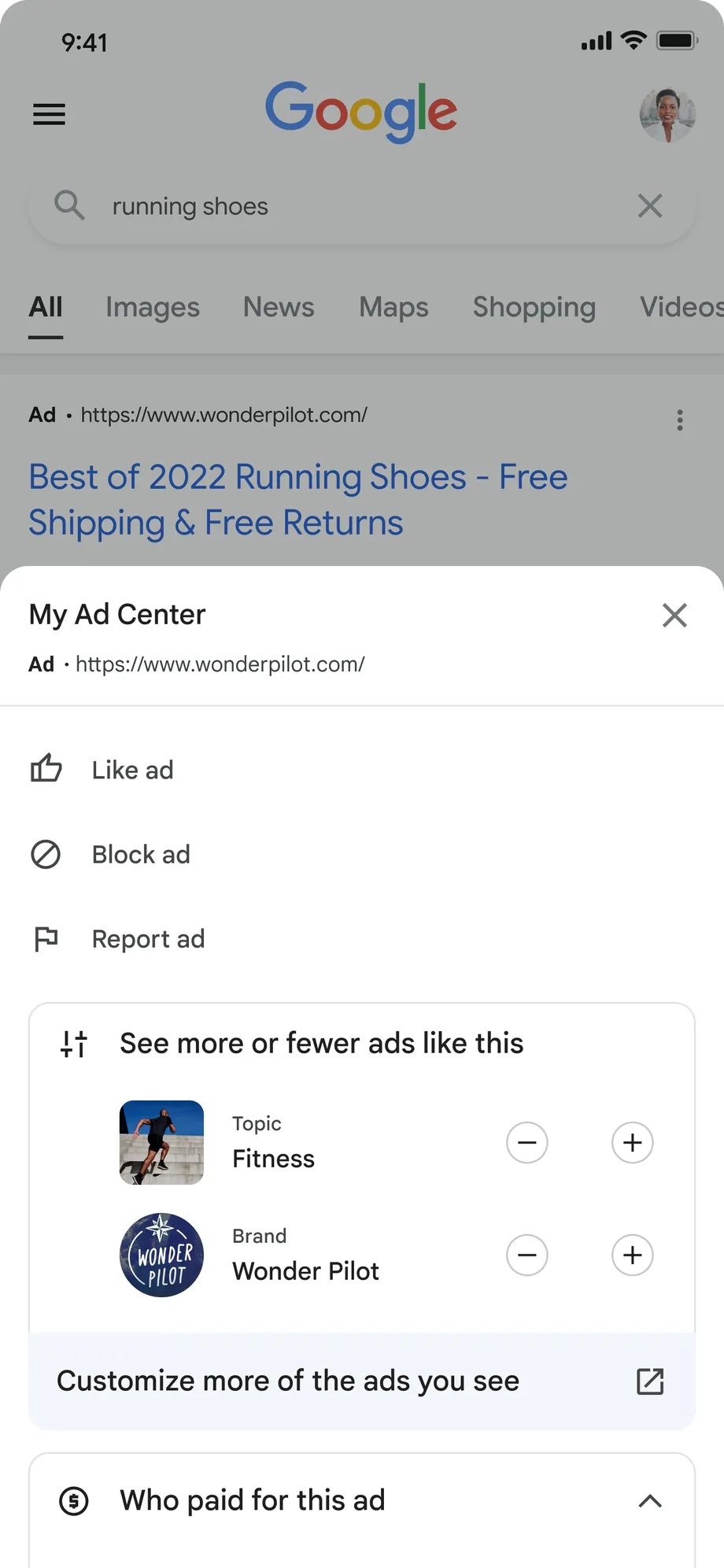For Google, which is famous for organizing world information, its latest promotion to users is that it will try to do more with less information. At the I / O 2022 developer conference held on May 11, the technology giant announced a series of privacy measures that will help users retain more control over how their data is used by Google applications and displayed to the world through search.
A new change introduced at the conference is the "my advertising center" interface: this center will allow users to choose from a series of topics they are interested in, customize the types of advertisements they see, or choose to see fewer advertisements on specific topics.

Google said that "my advertising center" will help users control not only how their data is used, but also how it affects their online experience.
In another message released at the meeting, Google said that users will be able to request the deletion of personal information, such as e-mail or address details, from search results through a new tool, which will be accessed on the user's Google profile page.
Perhaps for a developer oriented conference, some of Google's most important privacy statements relate to changes in software engineering. The cyber security and privacy department, led by Jen Fitzpatrick, Google's senior vice president for core systems and experience, emphasizes the concept of "protective computing": Google says the technology represents a change in the place and way data is processed.
In short, protected computing means that more data will be processed on devices such as Android phones rather than sent to Google's cloud server. When user information is sent to Google's server, more information will be processed anonymously by using technologies such as differentiated privacy and edge computing.
Fitzpatrick said that these changes are to prove users' trust in Google and keep them safe. "Protecting your privacy requires us to build privacy products in strict accordance with our design. The introduction of security and protection includes acknowledging that users' expectations of privacy are changing and that companies need to recognize and adapt to these expectations. It is worth noting that Google is increasingly trying to prove to users that it can at least retain some of their data from advertisers who generate most of the company's revenue," she said
Under the guiding statement of "default security, design privacy", Google is also promoting the implementation of additional security measures to improve the user security of its products.
The security upgrade released at the I / O conference includes a series of measures aimed at strengthening user protection for a range of Google products. When any security problem is found, a new account security status icon will display a warning on the user profile of all Google applications and guide users to take recommended actions to correct the problem. The company will expand the two-step verification of accounts. When users try to log in to Google accounts elsewhere on the Internet, they will send "is this you?" Notice of.
Phishing protection will also appear in Google workspace productivity suite, and docs, sheets and slides applications will soon display warning notices about malicious links in documents.
Overall, Google's security announcement shows that the company wants to be seen as centered on users' security issues. In an I / O activity full of new and creative use of user data, at least on the surface, privacy is by no means forgotten.